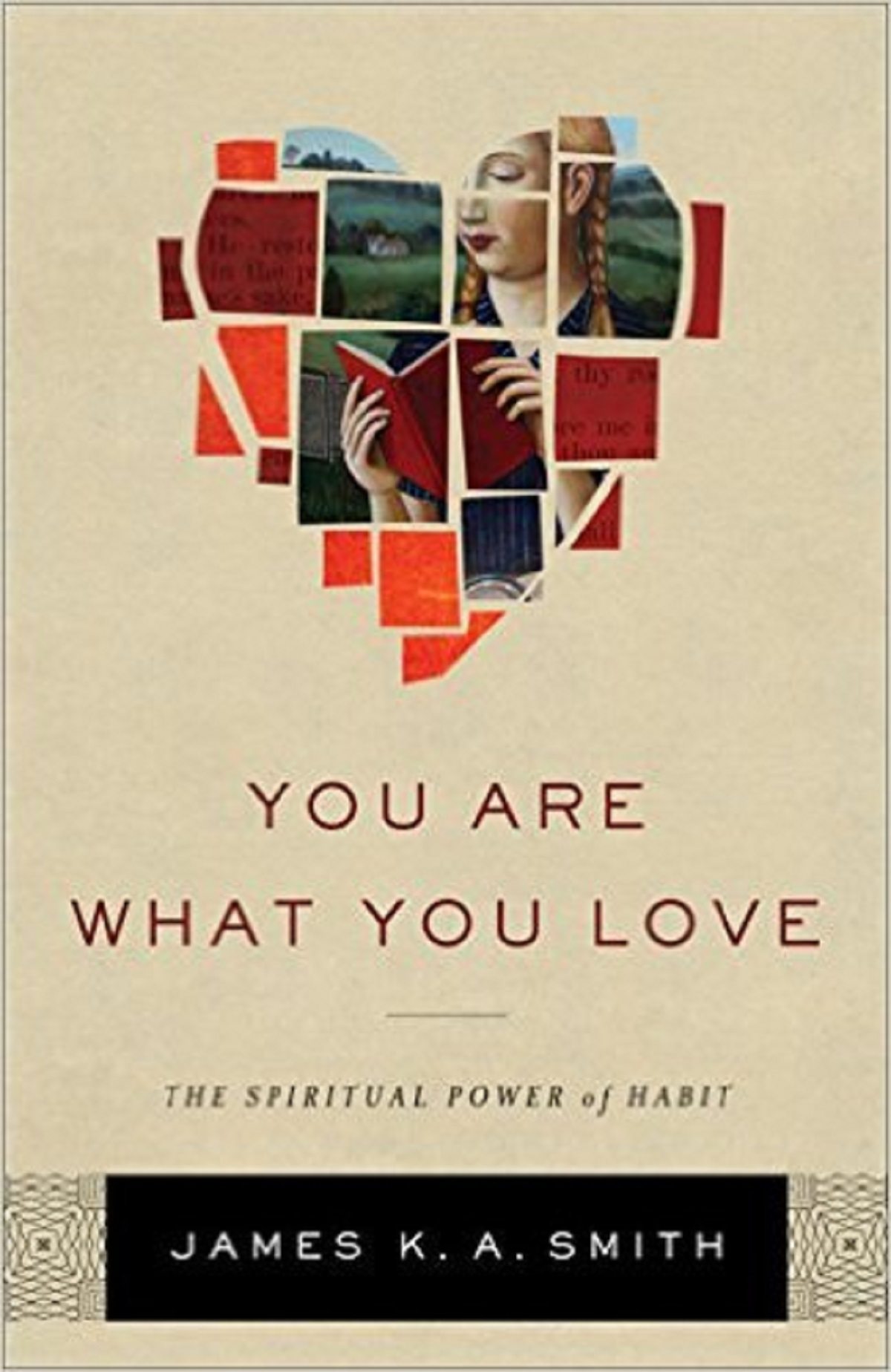Few words in the contemporary English lexicon are used with greater flippancy and imprecision than “love.” One might express love of chocolate or Terrence Malick films or the Lord Jesus Christ, with no semantic distinction. Perhaps this confusion is attributable in part to the stunted, emotive character of our modern moral vocabularies. Whatever the case, the church could use a fresh, accessible book on the theological shape of embodied love. And James K. A. Smith—professor of philosophy at Calvin College and editor of Comment magazine—has given us one.
You Are What You Love: The Spiritual Power of Habit [interview] represents Smith’s latest effort to remind us of love’s contribution to the basic logic of discipleship, and why our discipleship “needs to be centered in and fueled by our immersion into the body of Christ.” The book underscores the personal and collective embodiment of love, stressing the vitality of habits and practices—or “liturgies,” as Smith would have it—to order love rightly toward God and neighbor. Love, then, is both expressive and formative.
In keeping with the spirit of this emphasis, let me commend to you several lovely themes of You Are What You Love, after which I’ll conclude by quibbling with Smith’s construal of the thinking-loving relationship. For such a short book it covers an expansive territory, so I regret that I’ll not be able to indicate all the ways readers may appreciate its prudence. You Are What You Love is a superb book. Here are a few reasons why you should read it.
Agency
At no point does Smith oversimplify human agency. Humans are the same in that we’re each different. Smith ably explains the significance of narrative in the formation of personal character. It isn’t so much that we each have a character as that we are a character—in two senses of the word “are.”
In one respect the disciple embodies a life Christ has redeemed, and in another sense is a character within the historic saga of Christ’s body, the church. We each have our own stories of being made a character in the great story of redemption, and it’s vital we understand our own story as enveloped by the longer ongoing story of Christ’s body and mission.
Liturgy
Smith cites the late David Foster Wallace’s stirring commencement speech asserting that everyone bends the knee to something—“everyone worships.” The question isn’t whether we worship, but what we worship. We’d like to think that, on the whole, we’re mindful of what we worship. Yet the truth is that we’re not especially conscious of the vast majority of our daily judgments. We’re driven about by our loves, and these loves are so powerful and commanding that we can’t think our way through or out of them. We are our loves. And reordering them involves attending to our embodied practices, to the very form of our life. As Smith puts it, “Worship is the heart of discipleship if and only if worship is a repertoire of Spirit-endued practices that grab hold of your gut, recalibrate your kardia, and capture your imagination.”
The book’s final three chapters offer overlapping examples of how our ordinary practices—our liturgies—can reshape love: liturgies for the home, for education, and for vocation. The point of such liturgies isn’t repetition, per se, nor is it to avoid thoughtlessness. The point, rather, is to so order our loves so that we really do worship. Liturgies gradually hone our sensibilities; each of us is becoming a certain kind of person.

You Are What You Love: The Spiritual Power of Habit
James K. A. Smith
Imagination
Smith reflects with great insight on the powers colluding to impoverish our imagination and proposes constructive, hopeful guidance for recovering and fostering it. This is a much harder feat to accomplish than one might initially think, primarily because the prospect of enlivening imagination itself requires imagination.
Smith’s illustrations throughout the book are exemplary, as he not only tells but shows the truths of imagination. His chapter on teaching reminded me of the imperative to help my students picture themselves and their world, and even gave me a few ideas I can modify for classroom instruction. Wisdom abounds in this chapter. It certainly got me thinking more deeply about how, as a moral theologian, I portray for students the ways in which theology suffuses our moral universe with meaning.
Discern and Differentiate
I recognize this short survey of lovely themes cannot adequately capture the excellence of You Are What You Love. But I must share one concern. Occasionally, Smith draws a sharp contrast between thinking and loving, particularly where his critiques of Cartesian “thinking-thingism” are most pronounced, which by the end had me wondering: how long can a stress on loving and corresponding neglect of thinking be fruitfully maintained?
My guess is Smith would reply by pointing out the obvious logical truth that stressing the vital importance of love to individual formation does not at the same time deny thinking’s relevance to discipleship. True enough. But the effect of Smith’s approach—of emphatically underscoring the formative power of love upon human agency and minimizing the role of thinking—does raise natural questions as to how judgements upon the character and objects of love are ever reached. How am I to recognize, in other words, what deserves loving and what does not? Or to discern whether I have taken a wise course of action rather than circling in foolish indecision? How likewise am I to differentiate an experience of real culture from deceits of some cultural mythology?
Loving rightly must, at pivotal points, involve thinking rightly. Obedience itself implies as much. Those who have read Smith’s previous work will, like me, assume he tracks fully with this line of thought. He understands Augustinian recollection (cogito) and so grasps the holistic character of human intellectual and affective faculties. I suppose my concern is with sometimes diminishing the role thinking itself plays in the reordering of love. Augustine, for example, explains Christian love in terms of its relation to faith and hope, such that loving, believing, and hoping all co-imply each other. So, Smith may be right that we can’t think our way out of our loves, but neither, I’d suggest, can we finally love our way out of thinking.
Veiled Hope
In fairness to Smith, a book can accomplish only so much, and thus my minor reservation about not-being-quite-Augustinian-enough-in-one-very-narrow-respect is really more of a veiled hope that a volume to complement this one is forthcoming.
Regardless of whether that installment ever arrives, though, please let me commend You Are What You Love. You’re likely to love it.

































